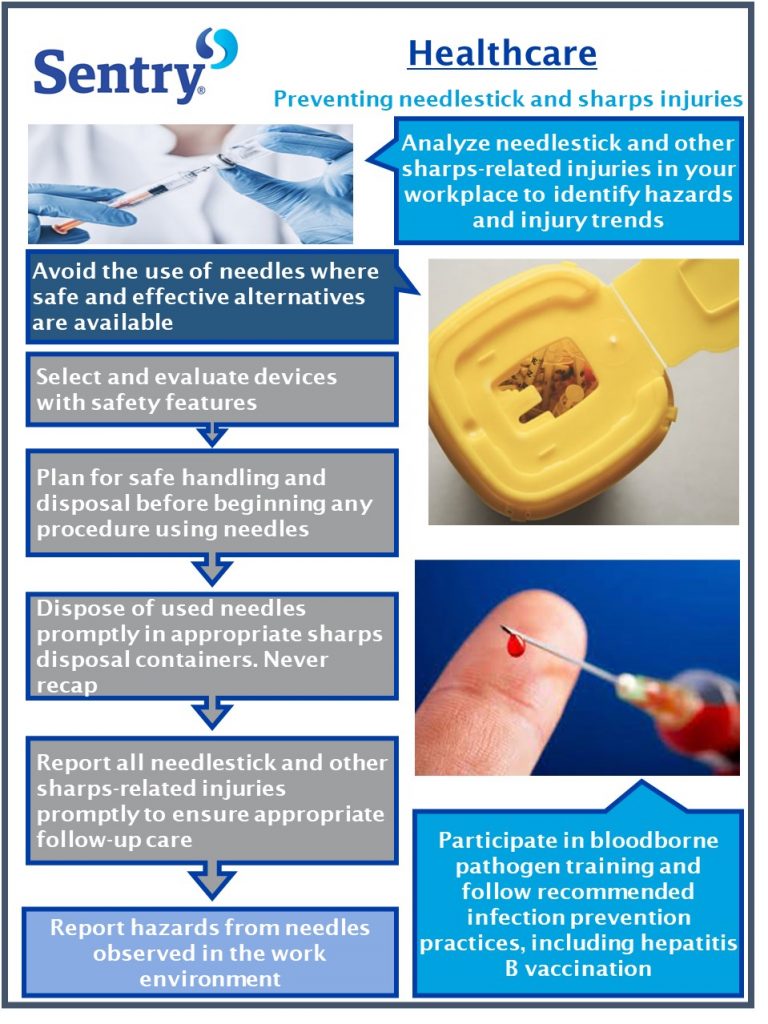Essential Safety for Healthcare Workers: Preventing Needlestick Injuries
As a healthcare professional (HCP), you are at risk for needlestick injuries and other exposures to bloodborne pathogens. Although the transmission of a bloodborne pathogen is uncommon to rare, when it does occur, the consequences can have negative physical, emotional, psychological, and financial effects. By avoiding occupational blood exposures, you can prevent the transmission of bloodborne pathogens, such as HBV, HCV, and HIV. You can protect yourself from HBV by getting a hepatitis B vaccination.
Prevent needlestick injuries

What to do if you experience a needlestick injury
If you experienced a needlestick injury or were exposed to the blood or other body fluid of a patient, immediately follow these steps:
- Wash needlesticks and cuts with soap and water
- Flush splashes to the nose, mouth, or skin with water
- Irrigate eyes with clean water, saline, or sterile irrigants
- Report the incident to your supervisor
- Immediately seek medical treatment
It is vitally important to report an exposure immediately; if the HCP was exposed to HIV, post-exposure prophylaxis should be initiated within hours after the exposure.
Report to your supervisor at the facility and seek treatment there, if possible. Also, report to your recruiter. The recruiter will initiate a Workers Comp claim with the Branch Manager and Accountable Healthcare Staffing Human Resources.
The National Clinical Consultation Center provides telephone consultations by physicians and other healthcare professionals for occupational and non-occupational exposures to bloodborne pathogens. The service is available from 9 a.m. to 8 p.m., eastern time, Monday through Friday, and 11 a.m. to 8 p.m., Saturday, Sunday, and holidays. The Center's website has detailed instructions for treating exposure to a bloodborne pathogen if the exposure happens outside of its operating hours. 1-888-448-4911.
National Clinician Consultation Center (ucsf.edu)
Resources
Centers for Disease Control and Prevention. (2021a). Needlestick Injuries are Preventable. February 1, 2021. Accessed August 24, 2021.
Needlestick Injuries are Preventable | NIOSH | CDC